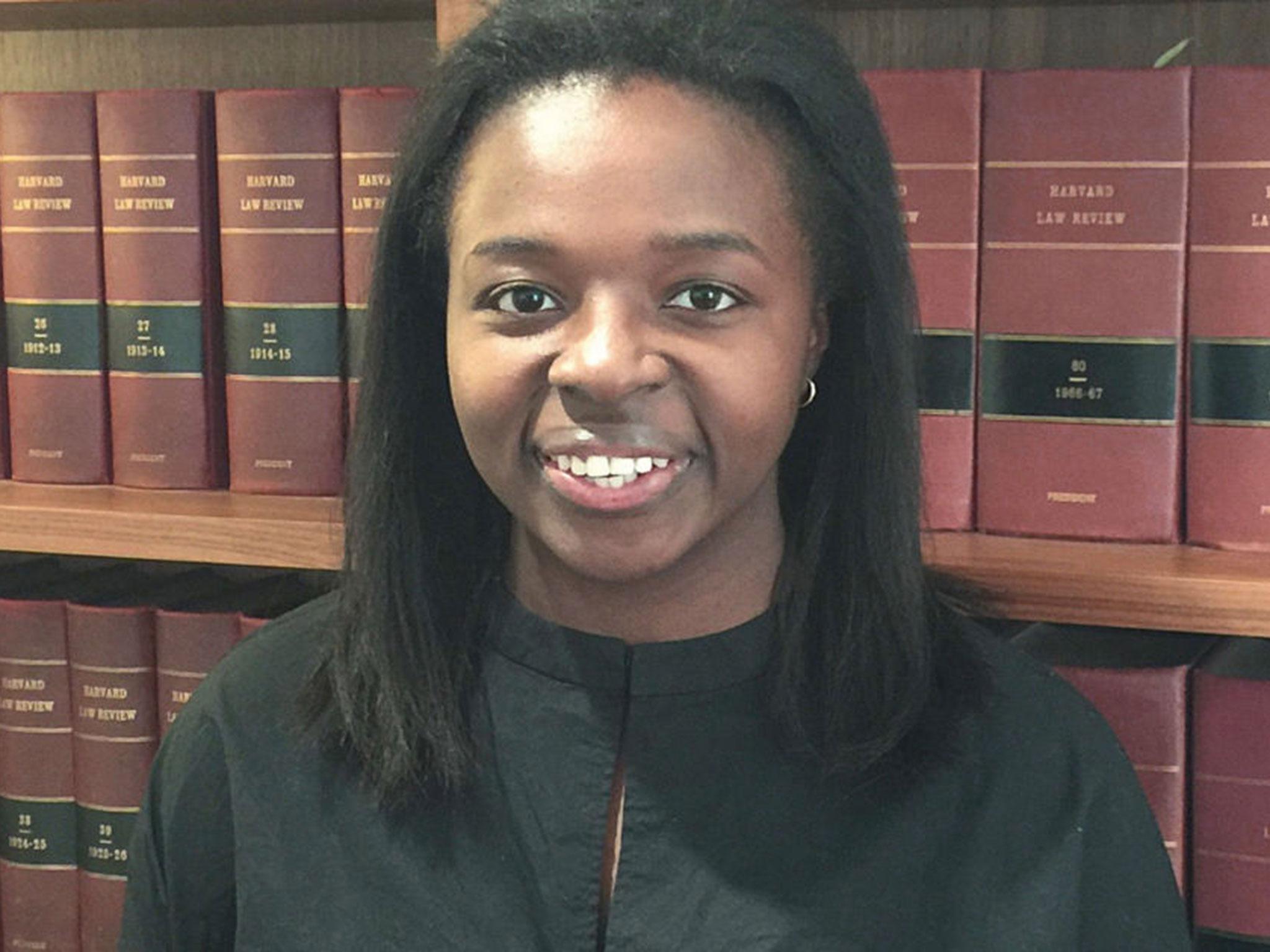Harvard Law Review elects first black woman president in its 130-year history
Barack Obama was first black man to be elected president 27 years ago

Your support helps us to tell the story
From reproductive rights to climate change to Big Tech, The Independent is on the ground when the story is developing. Whether it's investigating the financials of Elon Musk's pro-Trump PAC or producing our latest documentary, 'The A Word', which shines a light on the American women fighting for reproductive rights, we know how important it is to parse out the facts from the messaging.
At such a critical moment in US history, we need reporters on the ground. Your donation allows us to keep sending journalists to speak to both sides of the story.
The Independent is trusted by Americans across the entire political spectrum. And unlike many other quality news outlets, we choose not to lock Americans out of our reporting and analysis with paywalls. We believe quality journalism should be available to everyone, paid for by those who can afford it.
Your support makes all the difference.The prestigious Harvard Law Review has elected its first black woman president in its 130-year history.
ImeIme Umana, 24, a daughter of Nigerian immigrants, has been voted president by the Law Review's 92 student editors.
The first black man to be elected president was Barack Obama 27 years ago, while it has been 41 years since the first woman, Susan Estrich, was elected.
Ms Umana said she now dreams to become a public defender, after work experience in the public defender's office in the Bronx, New York.
“A lot of the clients I worked with that summer and since have looked a lot like me,” she told The New York Times. “They are disproportionately represented on the unfortunate end of the legal system, so it struck a little closer to home.”
Although the Law Review has been criticised in the past for a lack of diversity on its editorial board, it now has the most diverse class of editors in its history.
Of the over 90 editors, 46 per cent are women, while 41 per cent are students of colour, according to The Crimson.
In an interview with the student newspaper, Ms Umana said: "The descriptive stats of the Review haven’t historically been inclusive and so that may signal to some people that it’s not an inclusive place, because it didn’t have an inclusive membership.
"One of the best ways to signal inclusion is to, in fact, diversify the membership."
Subscribe to Independent Premium to bookmark this article
Want to bookmark your favourite articles and stories to read or reference later? Start your Independent Premium subscription today.
Join our commenting forum
Join thought-provoking conversations, follow other Independent readers and see their replies
Comments